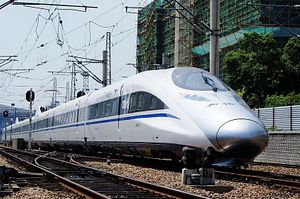China aims to complete the long-awaited construction of a multibillion-dollar, high-speed rail project from southwestern China to Laos by 2020 as part of Beijing’s efforts to link itself to Southeast Asian markets, official sources confirmed over the weekend.
The two countries agreed Friday to build a 40-billion yuan ($6.28 billion), 418-kilometer railway from Kunming, the capital of southwestern China’s Yunnan province, to the Laotian capital of Vientiane, the official China Economic Herald reported following a signing ceremony attended by the National Development and Reform Commission, China Railway Corporation, and Export-Import Bank of China.
According to Chinese media sources, China will be responsible for 70 percent of the investment while Laos will be responsible for the rest. Once operational, the railway will the Laos’ longest and fastest, with an average speed of 160 kilometers per hour and 60 percent of the line being bridges and tunnels. It is part of a larger 3,000-kilometer regional railway that will run from Kunming through Laos and Thailand down to Malaysia and Singapore.
The agreement followed years of discussions about the project than began around 2010. Lao officials had earlier expressed concerns, including the fact that China’s three-percent interest rate for the project was too high.
Laos, a landlocked country, currently only has one railway, which opened in 2009 and links to Thailand’s Nong Khai. China, Laos’ largest trading partner, has been promoting the project as a boost for Laos’ development in addition to the benefits for Yunnan province.
“The project will significantly boost the socioeconomic development of Laos, improve the nation’s transportation and generate a lot of jobs for local people. Of course, it will also inject new momentum into the economy of China’s southwestern regions,” Wang Xiaotao, deputy head of National Development and Reform Commission, told reporters at the signing ceremony on Friday.

































